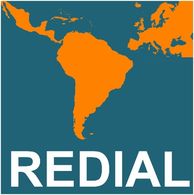Criticism and the publishing system in Ecuador: obstacles for national writers.
La critique et le système éditorial en Équateur : des obstacles pour les écrivains nationaux.
Résumé
‘Se ha dicho muchas veces que publicar en Ecuador equivale a quedarse inédito.’ This statement by Michael Handelsman, a specialist in Ecuadorian literature, will serve as the starting point for our article. Indeed, being and calling oneself a writer in Ecuador is a real challenge in this small Latin American country, where writers come up against insurmountable obstacles such as the disorganisation of the national publishing system and the absence of professional critics to help disseminate the literature produced at national level. An analysis of the evolution of these tools, which are supposed to help disseminate a work, will provide a better understanding of the difficulties faced by most Ecuadorian writers. A specific example, in the person of the novelist Javier Vásconez (Quito, 1946), will illustrate the recourse of creators to other means or ‘tricks’ to counter the inevitability of oblivion and the invisibility of a work that has no echo in the country of origin. Introduction: The purpose of this article is to assess the difficulty of being and calling oneself a writer in relation to the Ecuadorian publishing system and to criticism in the broadest sense, and to gain a better understanding of Javier Vásconez's reluctance to add the adjective ‘Ecuadorian’ to the profession of writer that he claims. For him and his fellow writers, institutional criticism and his country's publishing system have long been a gateway to a wider, international or continental readership, but also an often insurmountable barrier.
"Se ha dicho muchas veces que publicar en Ecuador equivale a quedarse inédito. » Cette formule de Michael Handelsman, spécialiste de littérature équatorienne, servira de point de départ à notre article. En effet, être et se dire écrivain en Équateur relève d'une véritable gageure dans ce petit pays d'Amérique latine car l'écrivain s'y heurte à des obstacles insurmontables telle la désorganisation du système éditorial au niveau national ou l'absence d'une critique professionnelle susceptible d'aider à la diffusion de la littérature produite au niveau national. L'analyse de l'évolution de ces outils sensés favoriser la diffusion d'une oeuvre permettra de mieux saisir la difficulté du parcours de la plupart des écrivains équatoriens. Un exemple précis, en la personne du romancier Javier Vásconez (Quito, 1946), illustrera le recours des créateurs à d'autres moyens ou « astuces » pour contrer la fatalité de l'oubli et de l'invisibilité d'une oeuvre dont personne ne se fait l'écho dans le pays d'origine. Introduction : Nous nous proposons dans cet article d'évaluer la difficulté d'être et de se dire écrivain en regard sur le système éditorial équatorien ainsi que sur la critique au sens large permettra aussi de mieux comprendre les réticences de Javier Vásconez à accoler l'adjectif « équatorien » au métier d'écrivain qu'il revendique. En effet, la critique institutionnelle et le système éditorial de son pays ont longtemps constitué, pour cet écrivain autant que pour ses confrères, une porte ouverte sur un lectorat plus vaste, international ou continental, mais aussi une barrière souvent infranchissable.
| Origine | Fichiers produits par l'(les) auteur(s) |
|---|

